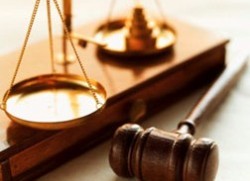High rates of violent crime will persist in The Bahamas until the criminal justice system is restored. Based on the data in the 2010 prison report, there really is not a justice system here to ensure justice to victims of violent crime.
Of the 749 people who were sentenced in 2010, 72 percent of them were sentenced to serve a year or less in prison; 12 percent, or 93 inmates, were sentenced to more than two years; only 13 people (less than two percent of the people admitted to prison last year) were sentenced to 10 years or more in prison. The higher sentences are issued for serious violent crimes.
In 2010, only two people were sentenced for murder. Only four were sentenced for rape. And those people were likely sentenced for crimes committed years before.
In 2010, there were 94 murders, 78 rapes and 919 armed robberies in The Bahamas, according to the 2010 police report. Overall, last year there were 1,688 crimes against the people (violent crimes) recorded.
Simply put, there is almost no punishment for seriously harming people in this country. And if there is no punishment, there is no deterrent to the behavior.
Consequently, offenders keep offending.
With a conviction rate so low when it comes to violent crime, the good thing is that we can only do better.
The government is building more courts and adding more police and more prosecutors. These are good things. A new penal code is also on the way. That too can be useful if the penalties for violent crime are modernized.
The judiciary is also focusing on fixing dates for trials in the Supreme Court to ensure that they occur.
Prison Superintendent Dr. Elliston Rahming, a criminologist, should be commended for creating such an insightful report. It has focused on the key problems in our justice system: prosecutions and convictions.
As a country we can only determine what is working, and what is not, if we have data at hand. Too many people drift into the esoteric when it comes to the Bahamian crime problem – this year we will record our forth homicide record in five years.
The problem in The Bahamas is not that people do not pray enough, or that they do not go to church, or that they have turned away from God. The problem is that we do not punish people for breaking the rules of our society.
Significant pressure needs to be put on the leadership of the police force and the Attorney General’s Office who are responsible for overseeing the prosecution of accused people.
If they cannot ensure that the quality of cases improves and the rate of prosecution increases, then new leaders of these organizations need to be found.
The Chief Justice, Sir Michael Barnett, too should come forward from time to time and address the country on the reforms taking place on his side in the judiciary. Sir Michael is not just a judge. He is also the head of one of the branches of government – he is the CEO of the judiciary. Currently, the government usually makes announcements on behalf of this branch of government.
The Bahamian criminal justice system is too dysfunctional. We must do better.
Editorial from The Freeport News


